Yad Vashem: Where History Whispers & Remembrance Echoes

If you are interested in learning about the history of the Holocaust, Yad Vashem should be on your must-visit places list. This museum is dedicated to preserving the memory of the six million Jews who died in the Holocaust. It is located in Jerusalem, Israel, and is the world’s largest Holocaust museum.
Background information on Yad Vashem
Yad Vashem was established in 1953 by an act of the Israeli Knesset. From the beginning, its mission has been to collect and preserve information about the Holocaust and to educate future generations about its impact. Yad Vashem is also responsible for recognizing and honouring the courageous individuals who risked their lives to save Jews during the Holocaust. Over the years, Yad Vashem has expanded to include several buildings, including the Holocaust History Museum, the Hall of Names, and the Children’s Memorial.
Purpose of the Museum
The purpose of Yad Vashem is not only to remember the victims of the Holocaust but also to educate people about the events leading up to the genocide and the lessons that can be learned from it. The museum’s goal is to help visitors understand the dangers of racism and hatred and to inspire them to work towards a more just and tolerant society. One of the most powerful exhibits in the museum is the Hall of Names. In this circular room, the names and personal details of Holocaust victims are displayed on walls illuminated by natural light. This moving exhibit serves as a reminder that every victim had a personal story and that the scale of the tragedy is truly staggering.
Yad Vashem is a must-visit destination if you want to better understand one of the darkest periods in human history. Through its exhibits and educational programs, you will learn about the Holocaust and its lasting impact on today’s world. By remembering the victims and honouring the heroes, we can ensure that the lessons of the Holocaust are never forgotten.
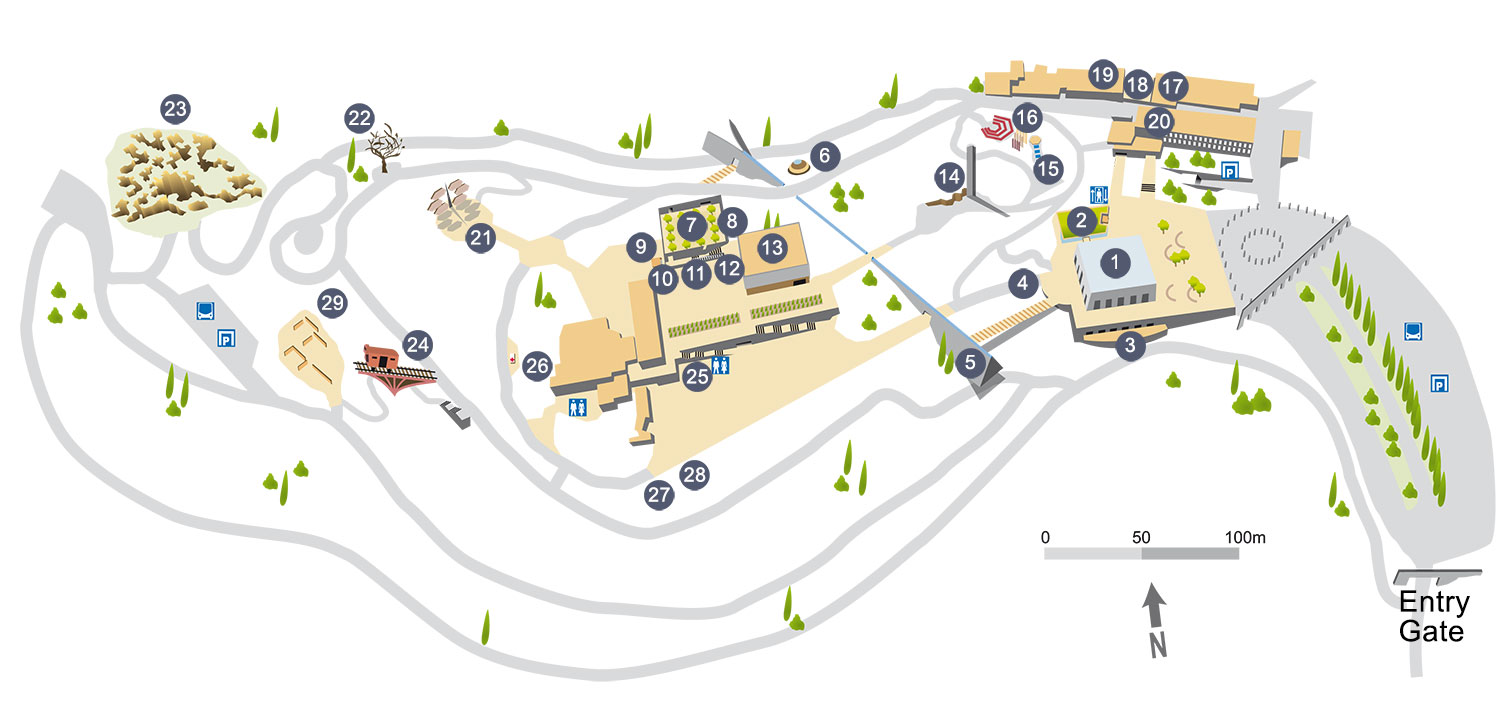
The Holocaust History Museum
If you are looking for a way to gain a better understanding of the Holocaust, you should consider visiting Yad Vashem's Holocaust History Museum. As the world's largest Holocaust museum, it offers an unmatched experience in learning about the events leading up to and during the genocide.
Exhibit 1: The War Against the Jews
One of the most moving exhibits in the museum is "The War Against the Jews," which recounts the horrific events leading up to the Holocaust. The exhibit begins with the rise of the Nazi party in Germany and Austria in the early 1930s. It follows the progression of anti-Jewish policies to the mass deportations and killings in the concentration and death camps. The exhibit serves as a reminder of the dangers of intolerance and a call to action to uphold human rights.
Exhibit 2: Jewish Life Before the Holocaust
Another exhibit that visitors find particularly moving is "Jewish Life Before the Holocaust." This exhibit highlights the vibrant Jewish culture in Europe before the war and serves as a stark contrast to the horrors that followed. The exhibit showcases a wide range of artefacts, including personal belongings, photographs, and documents that shed light on Jewish life and culture in Europe before the genocide.
Overall, Yad Vashem's Holocaust History Museum is an excellent place to remember and pay homage to the six million Jews who lost their lives during the Holocaust. By exploring the exhibits and learning about the atrocities committed during this dark period, visitors understand the importance of tolerance, acceptance, and human rights. So, if you are in Jerusalem, add Yad Vashem to your must-visit places list.
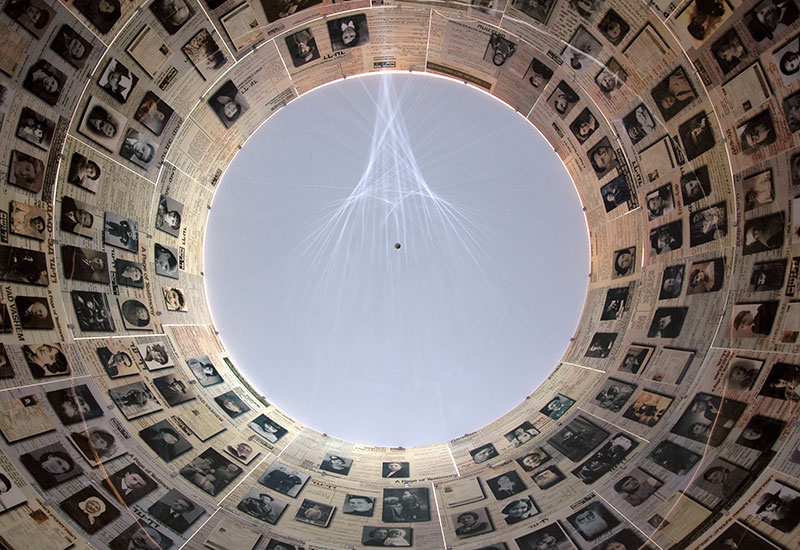
Artefacts on Display
The museum also features an extensive collection of artefacts belonging to Holocaust victims and survivors. You can see personal effects such as shoes, clothing, and jewellery, which provide a poignant reminder of the individuals who lost their lives. You can also view diaries and letters written by Holocaust survivors, which offer powerful testimonies of their experiences and resilience.
Overall, Yad Vashem's Holocaust History Museum is an excellent place to remember and pay homage to the six million Jews who lost their lives during the Holocaust. By exploring the exhibits and learning about the atrocities committed during this dark period in history, you can gain a deeper understanding of the importance of tolerance, acceptance, and human rights. We highly recommend adding Yad Vashem to your must-visit places in Jerusalem.
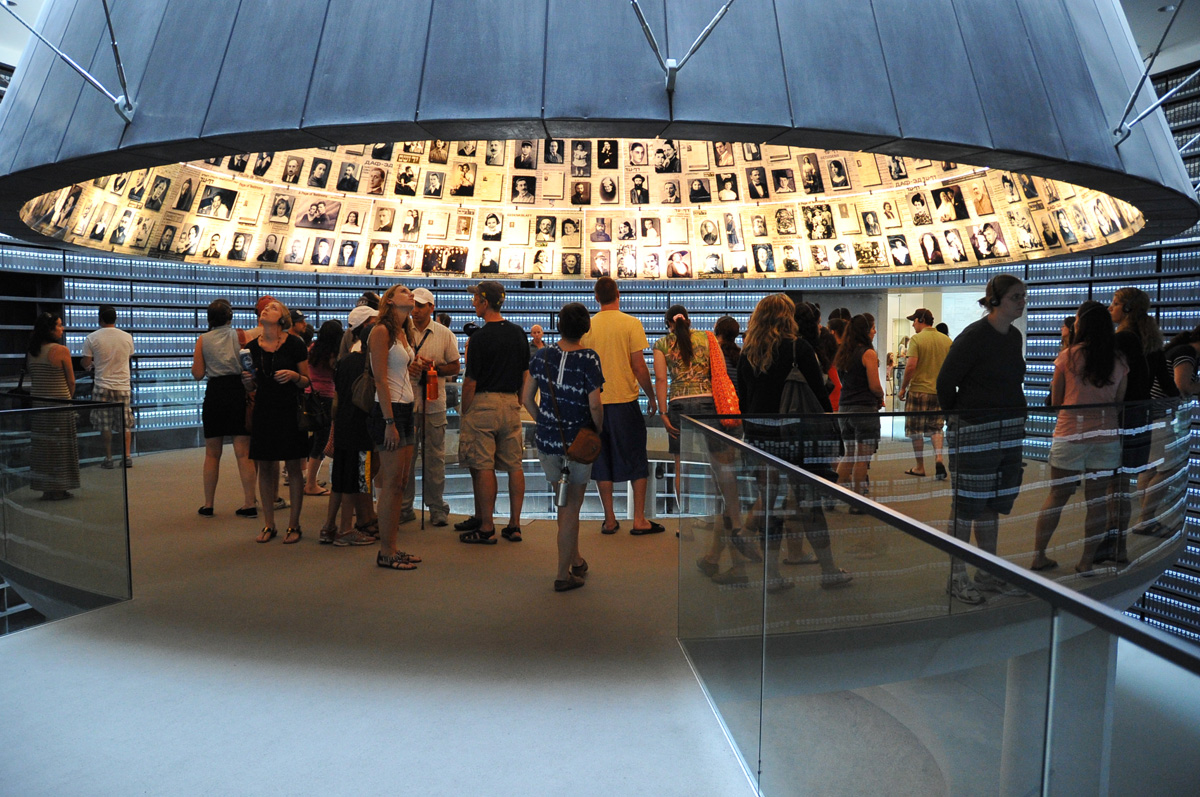
The Holocaust History Museum - Your Must-Visit Place in Jerusalem
The Hall of Names
When you visit Jerusalem, there's one place you should add to your must-visit list: Yad Vashem's Holocaust History Museum, the largest Holocaust museum in the world. This museum offers an unparalleled experience in learning about the events surrounding the genocide and the atrocities that occurred during this dark period in history. One of the most significant exhibits in the museum is the Hall of Names, where you can pay homage to the six million Jews who lost their lives during the Holocaust.
The significance of the Hall of Names
The Hall of Names is a cylindrical structure lined with shelves that contain thousands of testimonies of Holocaust victims. You can walk around the circular room surrounded by these shelves, looking up at a seemingly endless ceiling of millions of tiny holes representing lost lives. The significance of this exhibit lies in its role as a memorial to the victims and as a symbol of the power of memory. The Hall of Names serves as a place where we can remember and honour these individuals and keep their memories alive for generations.
The process of memorializing Holocaust victims
At the Hall of Names, there is a process of memorializing the victims. Yad Vashem invites families and friends of Holocaust victims to submit Pages of Testimony, which are forms containing information about their loved ones. These testimonies are then added to the database, continuously updated with new information and research. The process of memorializing is not only crucial in honouring the victims but also serves as a means of creating a record of those who were lost and as a tool for future research into the Holocaust.
Yad Vashem's Holocaust History Museum is an essential place to visit in Jerusalem. The Hall of Names stands out as one of the most significant exhibits, offering a powerful reminder and a moment of silence for Holocaust victims. By visiting this museum and paying tribute to the victims, you can gain a deeper understanding of the importance of tolerance, acceptance, and human rights.
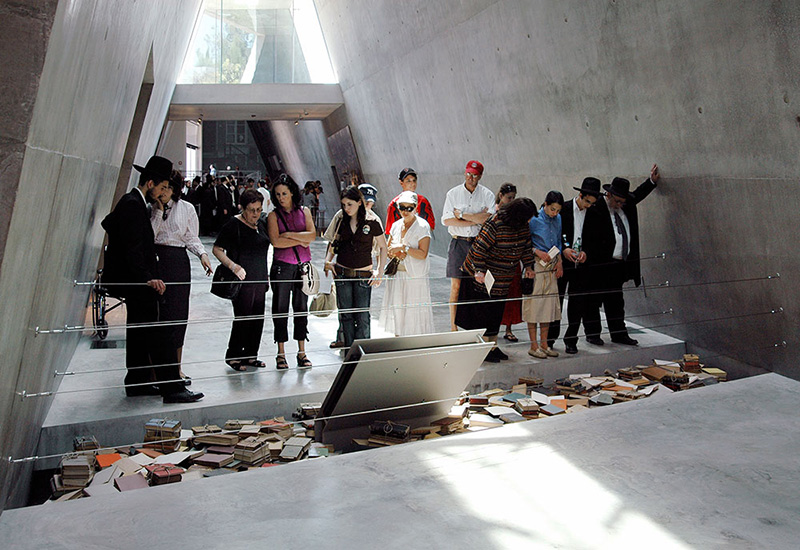
Remembrance and Commemoration
If you find yourself in Jerusalem, visiting Yad Vashem's Holocaust History Museum is necessary. One of the most poignant exhibits in the museum is the Hall of Names. While it is heartbreaking to bear witness to the atrocities that occurred during the Holocaust, there is something about this exhibit that makes it a significant experience. By walking around the cylindrical room, surrounded by testimonies of victims on shelves rising high above, one can't help but feel a sense of remembrance and commemoration.
Ceremonies and events at Yad Vashem
Yad Vashem organizes a variety of events throughout the year to commemorate the victims of the Holocaust and educate visitors about the events that occurred. One such event is the annual Holocaust Remembrance Day ceremony, which takes place at the museum's main memorial site. Thousands of people, including survivors and their families, gather to pay their respects and listen to speeches and musical performances. If you have the opportunity to attend one of these events, it can be a powerful way to commemorate those who lost their lives during the Holocaust.
The Eternal Flame
One of the most prominent features of Yad Vashem's main memorial site is the Eternal Flame, which honours the memory of those who were killed during the Holocaust. The flame is located at the centre of a pool, and its perpetual burning is a sign of our continued commitment to memory and remembrance. Standing in front of this flame can be a powerful experience and an opportunity to reflect on past atrocities, survivors' resilience, and our responsibility to ensure that such events never happen again.
Visiting Yad Vashem's Holocaust History Museum is not only essential to learning about history, but it also serves as an important reminder of the dangers of bigotry and racism. By honouring the victims of the Holocaust, we can continue to strive for a better future where acceptance and tolerance reign.
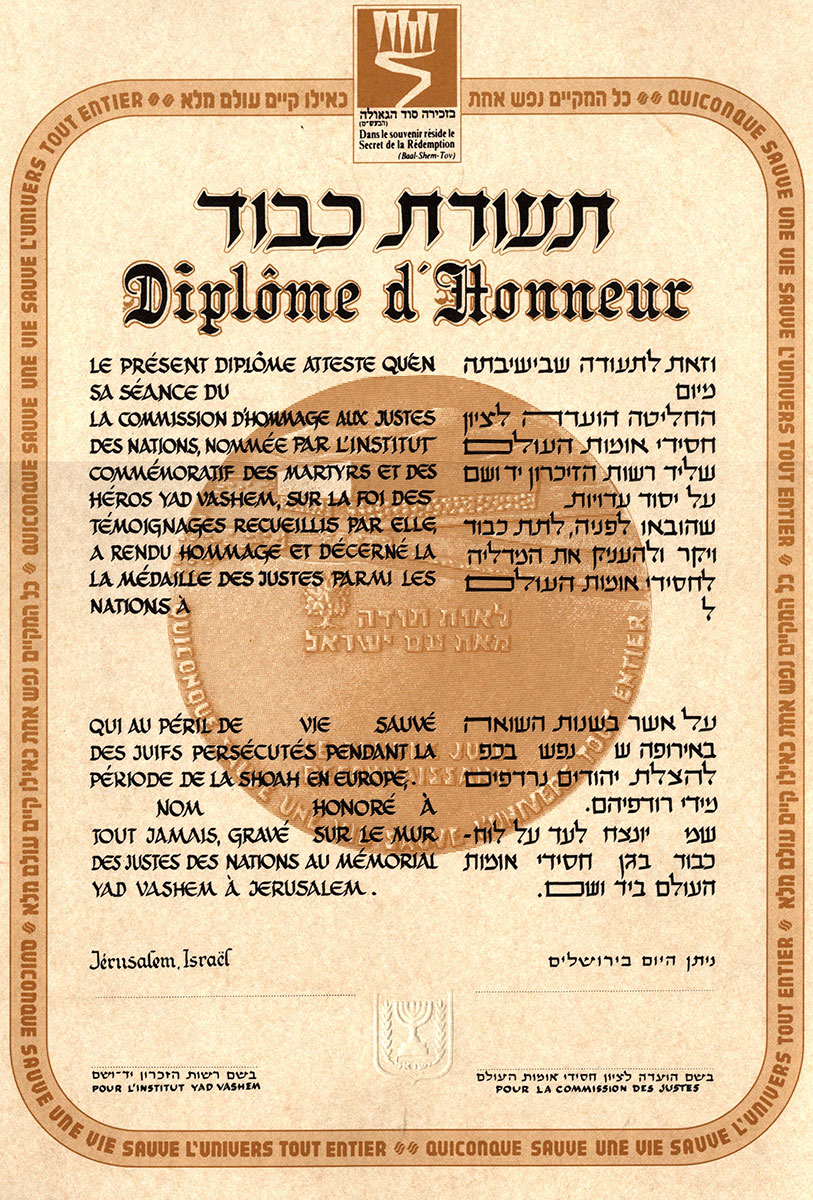
The Garden of the Righteous Among the Nations
If you ever have the chance to visit Jerusalem, the Yad Vashem Holocaust History Museum is a must-see attraction. Walking through the museum can be an emotional experience, one that gives a glimpse into the horrors of the Holocaust. While the Hall of Names is a powerful exhibit, another part of the museum holds equal significance: The Garden of the Righteous Among the Nations.
Honouring non-Jews who saved Jews during the Holocaust
The Garden of the Righteous Among the Nations is a unique feature of the museum, dedicated to those who risked their lives to save Jewish people during the Holocaust. Many of these individuals were not Jewish but chose to help those in need despite the risks. The garden serves as a tribute to their bravery and selflessness. Each tree in the garden is planted in honour of a specific individual, with a plaque bearing their name and the country they came from.
Significance of the Garden
The Garden of the Righteous Among the Nations is an important reminder that amidst the darkness of the Holocaust, there were individuals who chose to stand up against hatred and intolerance. These people put themselves in danger to help others, showing that even in the most dire circumstances, humanity can shine through. Standing among the trees in the garden, one can't help but feel a sense of gratitude for these brave individuals and their actions.
Visiting the Yad Vashem Holocaust History Museum and the Garden of the Righteous Among the Nations is an essential experience. By learning about history and remembering those who lost their lives, we can continue to strive for a better future where acceptance, tolerance, and compassion are upheld. It is a powerful reminder of the past and a call to action for the future.
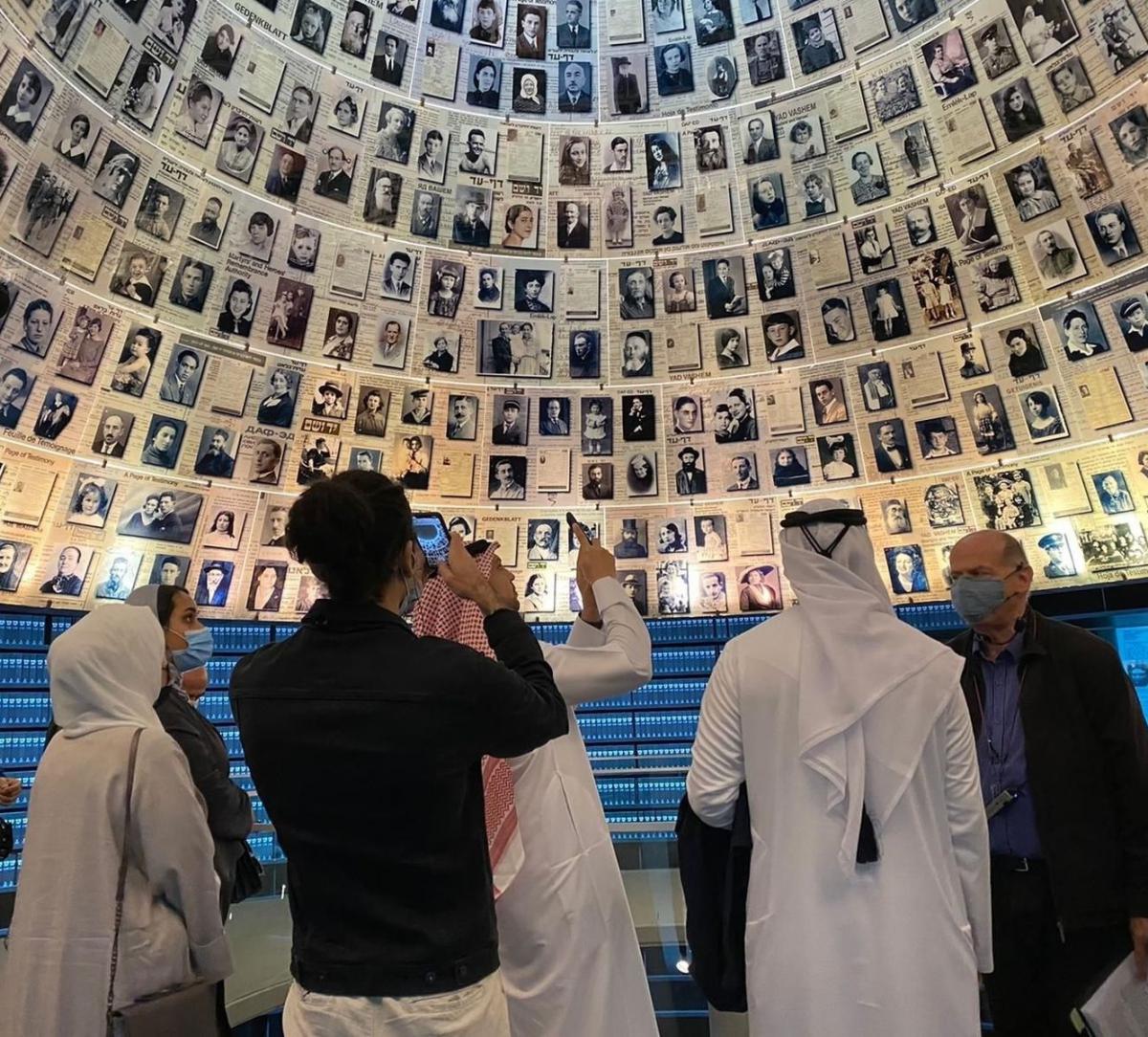
Visit the International School for Holocaust Studies at Yad Vashem
If you plan to visit Jerusalem, a trip to the Yad Vashem Holocaust History Museum is necessary. This museum is a powerful reminder of the atrocities of the Holocaust and an opportunity to pay tribute to those who lost their lives. But the museum offers more than just a chance to remember the past; it also offers an opportunity to learn and educate others on the dangers of intolerance and hatred. One way to do this is by visiting the International School for Holocaust Studies, a part of Yad Vashem that offers educational programs and resources for everyone.
Educational programs offered at Yad Vashem
The International School for Holocaust Studies offers a range of education programs to suit different ages and interests. Their educational programs are designed to teach the history of the Holocaust, promote critical thinking and encourage a sense of social responsibility.
The educational programs include seminars, workshops, training programs, study days, and international conferences. They cater to teachers, educators, academics, and other professionals interested in Holocaust education. The programs offer an in-depth look into the Holocaust, including teaching about Jewish life before the war, the Nazi ideology, resistance, and aftermath.
Online resources for educators
The International School for Holocaust Studies also offers numerous online resources for educators to teach about the Holocaust. These resources are free and easily accessible and include lesson plans, activities, project ideas, and testimonies. Educators can find materials that match their teaching needs and tailor their lessons to their students.
The online materials include interactive maps, photographs, videos, and audio testimonies of Holocaust survivors. Yad Vashem also has an online curriculum centre that provides lesson plans, printables, and other resources for educators in the K-12 range. They also offer a range of online courses and webinars that can supplement an educator's knowledge of the Holocaust.
Overall, Yad Vashem's International School for Holocaust Studies is a valuable resource for anyone who wants to learn more about the Holocaust. Learning about the Holocaust is essential, and through education, we can prevent similar atrocities from happening in the future.
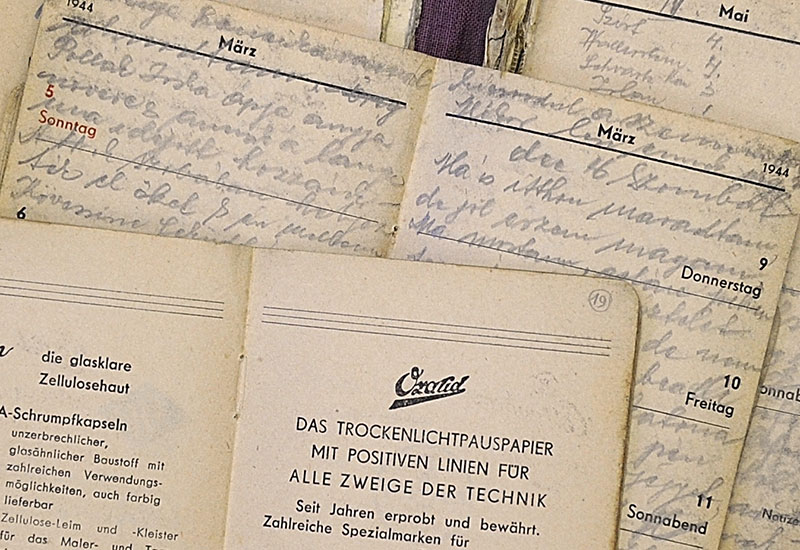
The Yad Vashem Library
If you plan to visit Jerusalem, add the Yad Vashem Holocaust History Museum to your itinerary. Your visit will not be complete without a tour of this poignant museum that reminds us of the atrocities of the Holocaust and pays tribute to the lives lost. But did you know this museum is also home to the International School for Holocaust Studies? This part of Yad Vashem offers educational programs and resources for visitors of all ages, promoting critical thinking and encouraging social responsibility. One of the invaluable resources available at Yad Vashem is the Yad Vashem Library.
Collection of Holocaust-related literature and research materials
The Yad Vashem Library is a comprehensive collection of literature and research materials related to the Holocaust, including rare and unique items. This collection includes books, periodicals, photographs, films, and other documents related to the history of the Holocaust. The materials cover topics such as the pre-war Jewish life, Nazi ideology, Jewish resistance, and the aftermath of the Holocaust. The library also has one of the most comprehensive collections of testimonies from Holocaust survivors, witnesses, and liberators. Visitors to the library can access these materials in various languages, including Hebrew, English, German, French, and others.
Accessibility and visitors’ usage
The Yad Vashem Library is open to the public, and visitors are encouraged to utilize its resources for research and education purposes. The library is located in Yad Vashem's main building and is accessible during museum opening hours. Visitors need to present identification and register to utilize the library's resources. The library staff can assist visitors in their research and education needs. For those who cannot visit the library in person, Yad Vashem offers an online library that visitors can explore remotely. The online library has extensive digitized materials, including books, documents, photographs, and testimonies. Yad Vashem continues to digitize its collection, making its resources more accessible to researchers and educators worldwide.
Visiting Yad Vashem's International School for Holocaust Studies and utilizing the resources of the Yad Vashem Library are excellent ways to learn and educate others about the Holocaust. This valuable educational experience teaches visitors about the dangers of intolerance and hatred, promoting critical thinking and social responsibility. Stop at the Yad Vashem Library during your visit and explore the vast collection of Holocaust-related literature and research materials.
